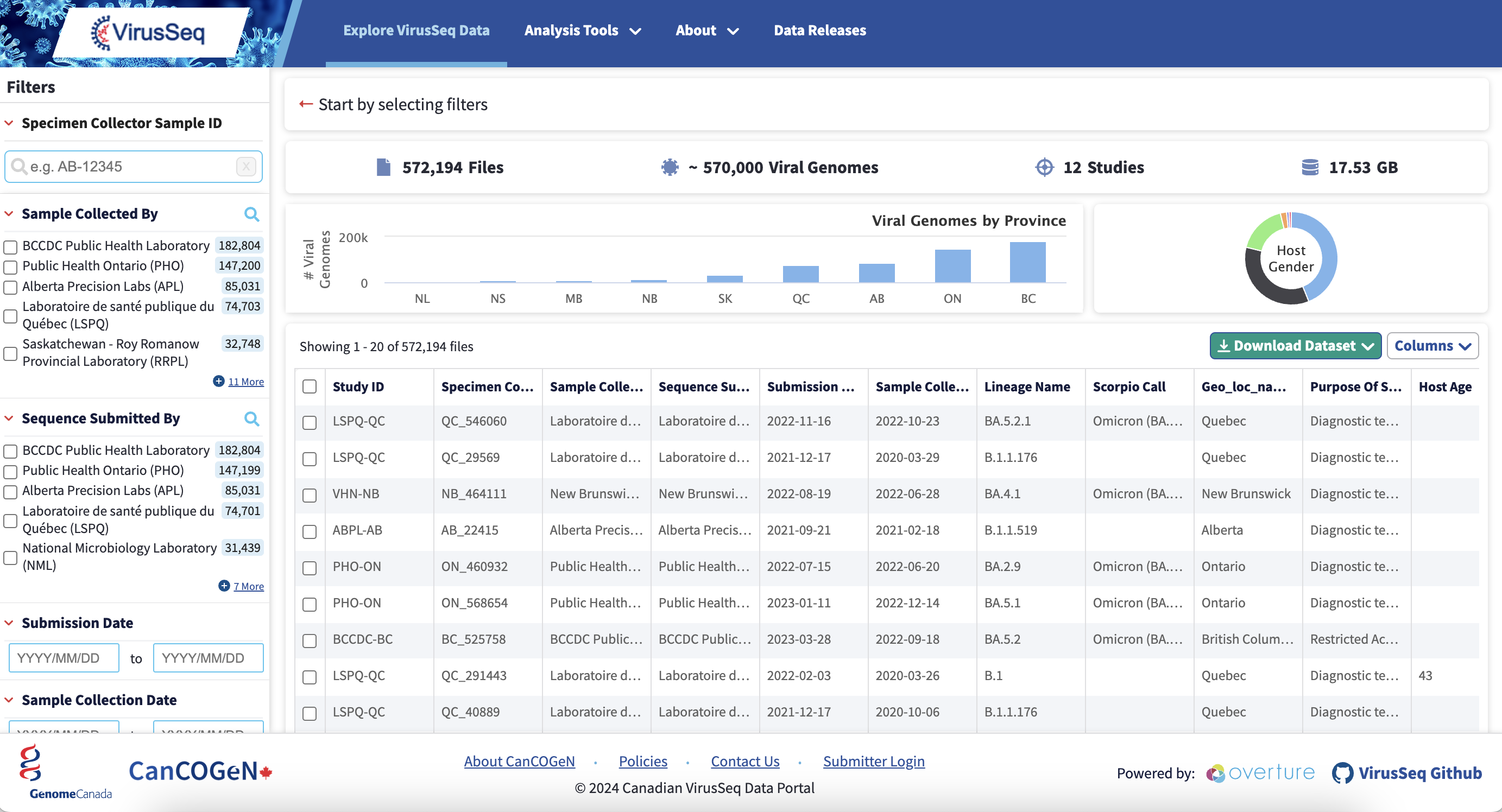CoVaRR-Net - funding award
OICR and the Courtot lab have joined the Coronavirus Variants Rapid Response Network (CoVaRR-Net) and have secured additional funding to maintain and expand the VirusSeq data portal until March 2025.
The VirusSeq Data Portal is an open-source and open-access portal for all Canadian SARS-CoV-2 sequences and associated non-personal contextual data. It harmonizes, validates, and automates submission to international databases. It is the first such open sequence database of its kind in Canada, providing additional metadata not available through any other resource. The resulting analyses by tools such as CAMEO’s Duotang have been seen as highly reliable and are used by Industry (e.g., AstraZeneca), researchers, and the media to aid investigations such as COVID-19 variant risk assessment.

In addition to the ongoing maintenance of the VirusSeq portal, and in collaboration with the national WWRG: CoVaRR-Net wastewater surveillance research group, we will initiate the integration of Canadian wastewater data, with a focus on the integration of regional variant frequencies and ensuring the appropriate metadata.
Integration of wastewater data, at least at the level of frequency of variants of concerns (VOCs) by province/territory, would be beneficial for a number of reasons, including
- Wastewater data is an important complement to clinical-case based data, and leading indicator, delivering more serial, cost-effective, real-time assessments of entire populations/areas more comprehensively and with more inclusively (i.e. it is not limited to those with access to clinical testing),
- This incorporation of wastewater data will aid the integration of case-based data and associated contextual data (including more environmental data), aiding One Health investigations,
- This provides an important base for other initiatives and will support several prominent groups leading provincial wastewater analysis that are currently surveying, or have the capacity to survey, approximately 80% of their provincial populations.

